Something Good #106: A Winter Reading List
This is a cold battle we are in, and in it we must sometimes read cold things.

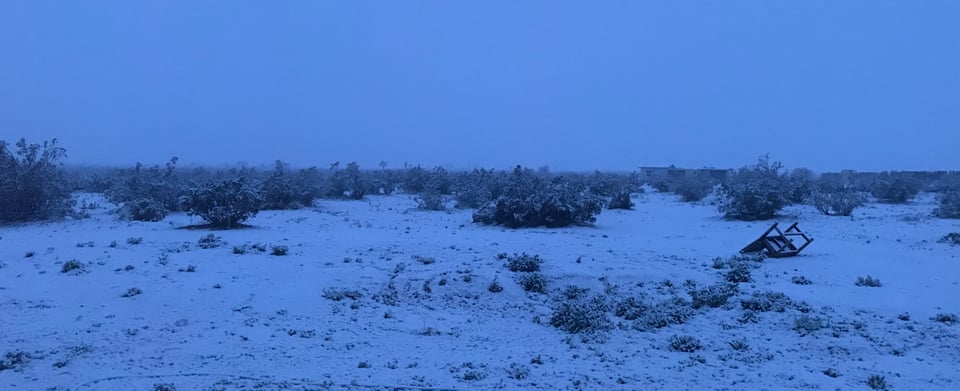
Outside, the snow is falling. It is early December, which as far as I’m concerned means that winter is here.1
Compelled by a desire to read a very specific type of story in the snowy months ahead, I’ve been compiling a reading list I want to share with you. These are books ostensibly written for children, but equally appealing to adults. They are set in the British Isles, and they all have some connection to folkways, the occult, pre-Christian myths and legends. Most of all, they have a strong sense of place and connection to their settings, which are deeply fraught with history.
You could file them under “fantasy,” but call it low fantasy, meaning set in our world, and interwoven with local myths, legends and mysteries.
These books are usually about clever children bedeviled by strange objects of power and heavy responsibilities. They are full of spooky barrows, crumbling chapels, packs of wolves, Roman ruins, time-slips, overgrown holloways, weird birds of all kinds, snowstorms, immortals.
They are sometimes series, but never franchises. They resist adaptation, sometimes strenuously. They do not seek to teach dull, worthy moral lessons. They can be scary, wild, otherworldly. In them, good people do bad things2 and mysteries are not always resolved.
This reading project is a cross-initiative with Barely a Book Club, where I will post more frequently. (You won’t get doubles if you subscribe to both.) That spinoff of this newsletter is concerned with travel writing about places real and imaginary; the books I’ve chosen are set in both, usually at the same time.
Of course, you’re invited to read along—this is winter, and we must huddle together for warmth…
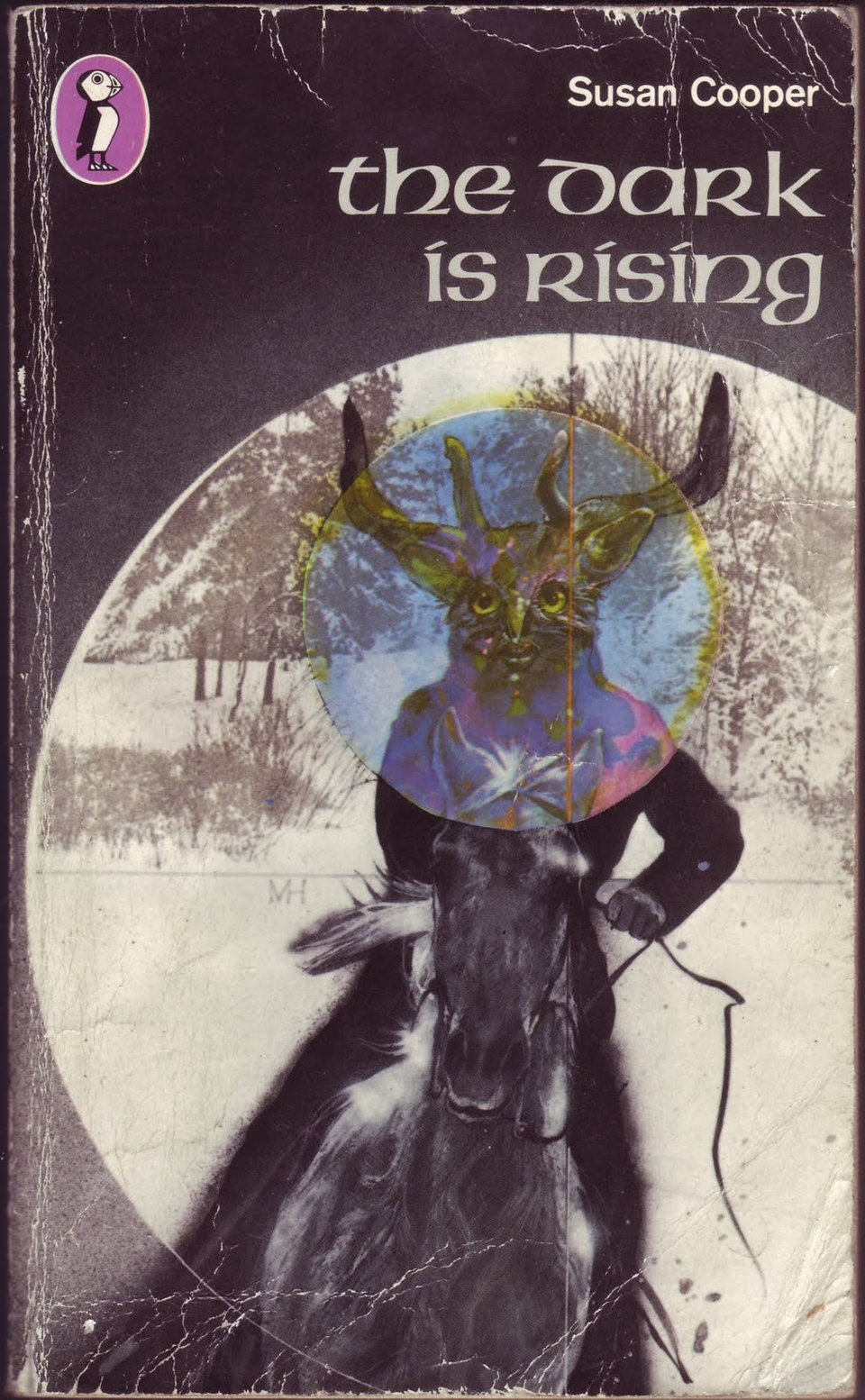
The first book in the list is one I’ve written about before. With December’s early snowfalls comes a tradition in my household—a new one, to be sure, this will be the third year—but one I cherish. With the world outside muffled in white, I close my eyes and listen to the BBC World Service radio adaptation of Susan Cooper’s 1973 folk-fantasy classic The Dark Is Rising.
No holiday attaches itself to art and literature quite like Christmas, but to my eyes, and ears, The Dark Is Rising evokes the season best in all its cozy, spooky glory, evoking ancient traditions and menaces that long pre-date the syncretic innovations of Christianity.
The audio adaptation is written by actor Simon McBurney and the great writer of the natural world, Robert Macfarlane (him a great proselytizer of Cooper’s work) and voiced by performers including Toby Jones and Harriet Walters. It is a remarkably well-staged adaptation, with a spatial sound design so vivid that when I first listened to it, lying on my bed with a blizzard raging outside, I swore I could see the action behind my closed eyes.
Listen to it on a day when the wind is howling and snowflakes, real or imagined (depending on where you live) swirl outside.
And then—read the book!
It was only this year that I picked up a very beat-up paperback copy I found on eBay. The Dark Is Rising is actually the second book in the series, but it should be read first, and it is by far the standout. It stands on its own as a self-contained work and it is extra-special somehow. Deep and ancient. Like Ursula K. Le Guin’s Earthsea books, it feels like a fresh modern translation of some very old folk story.
I’ll be writing about it more soon. In the meantime, go listen, read, or both, then come back here to discuss.
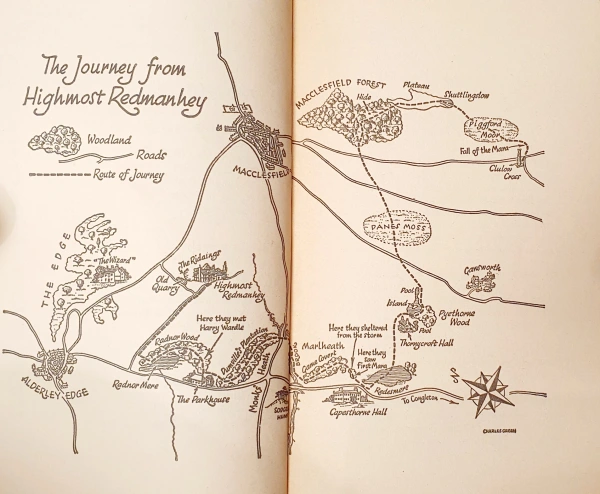
As for the rest of the list, I’m still working it out, but here’s the shortlist so far. Not all of them exactly fit the description above, but all are in the neighbourhood. Suggestions are very much welcome.
On researching them, I discovered that four of the below writers (Cooper, Garner, Wynne Jones, Lively), coincidentally or not, attended Oxford in the 1950s, where they likely attended lectures by J.R.R. Tolkien and C.S. Lewis—I think this connection is somehow important.
The Weirdstone of Brisingamen by Alan Garner (and possibly Red Shift and others)
The book I’ll read after The Dark Is Rising. Always wanted to read Garner, who has lived in an ancient manor called Toad Hall since the 1950s and is still publishing at age 90. Particularly intrigued that he published the first two books in this series, about a brother and sister charged with protecting a magical stone, in the early ‘60s, only to surprise everyone with a trilogy-capper nearly half a century later. A favourite of Ursula K. Le Guin, among many others.
The Wolves of Willoughby Chase by Joan Aiken
Probably book #3? “Aiken’s favorite literary terrain was the blurred border where nineteenth-century realism begins to slip into folklore and fantasy. This is a realm of absurd stock characters and hoary narrative devices: cruel governesses, kindhearted orphans, counterfeit wills, hidden passageways, long-lost relations, doppelgängers, clues hidden in paintings, castaways, coincidences, sudden returns from the dead.” (From Brian Phillips’ “The Practical Magic of Joan Aiken, the Greatest Children’s Writer You’ve Likely Never Read,” in the New Yorker.)
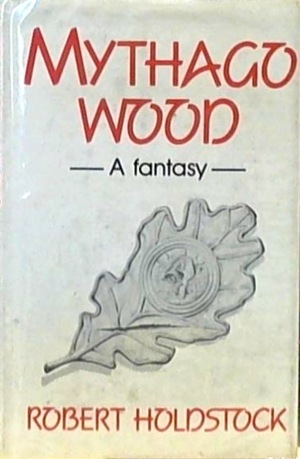
After that, I haven’t quite made up my mind, but here are some of the contenders:
Mythago Wood by Robert Holdstock
“No other author has so successfully captured the magic of the wildwood.” — Michael Moorcock
Charmed Life by Diana Wynne Jones
The Ghost of Thomas Kempe by Penelope Lively
Kingdoms of Elfin by Sylvia Townsend Warner
Folk by Zoe Gilbert
“Superstition often proves to be prophecy rather than hokum, and human and animal kingdoms merge into areas of confused identity, a beautiful blurring of fur, feather and fin. Hares, kites and bees play vital roles. Dark magic exists.” - Guardian review by Benjamin Myers
And some additional reading:
Four British Fantasists by Charles Butler
The Old Ways or The Wild Places by Robert MacFarlane
Non-fiction, but very much in the theme of the list.
The Bright Sword by Lev Grossman; an American, sure, but this Arthur story, published this year, covers a lot of the same terrain—in both senses.

This will likely be the last newsletter I send out before my fundraiser for Doctors Without Borders ends on December 31. It’s now or never to donate and receive some beautiful bookplates designed by James Braithwaite… and now I’ve gone ahead and sweetened the pot!
Donate—anything at all—to the fundraiser and I will also send you a couple of beautiful Something Good and Barely a Book Club stickers,3 pictured above, as well as match your donation up to a reasonable limit. We are almost at our goal of $1000, and I would be delighted if you could help us go over the top.
Plus, I might even throw in another surprise or two…
Bonus seasonal playlist:
This is Something Good. If you like what you read here, please subscribe, and/or tell a friend. Happy darn holidays.
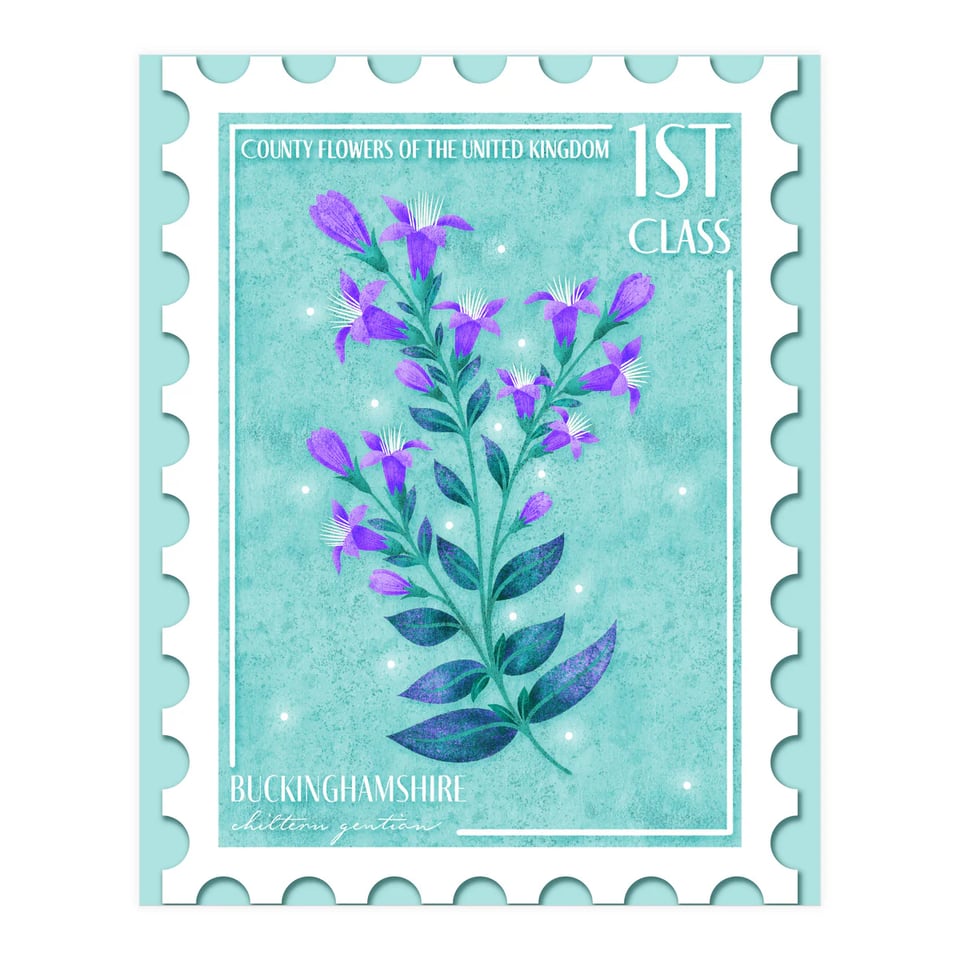
I have some unpopular thoughts about when the seasons should begin and end. Wouldn’t it make more sense for summer start on the first of June and last just until September, for fall to go from September through November, and for winter to officially begin on December 1? I know: solstices. But come on, September 20 is no more “summer” than a snowy December 8 is “autumn.” Just asking that you think about it. ↩
“This is a cold battle we are in, Will,” says Merriman Lyon in The Dark Is Rising, “and in it we must sometimes do cold things.” ↩
While supplies last. ↩

Oo, I love this idea for a reading list. It evokes a lot of the kind of book I grew up loving!
Perhaps you are the person who’ll finally be able to identify a book I read as a child. It was set in a (girls?) boarding school in Cornwall, probably early 50s, and was rife with smugglers, faeries, and cold nights amongst the cliffs and marshes. It had a short title - maybe 2 words - and was an old hardback cloth cover book.
I don’t imagine this will ring any bells, but was worth a punt!
That's a really nice description of your mystery book (and you may know I love mystery books! https://www.markslutsky.com/archive/something-good-27-a-lost-childrens-story/ )
Sort of sounds like Joan Aiken, except I don't know about the faeries. Also, a couple of The Dark Is Rising books (Under Stone, Over Sea and Greenwitch) both take place on the Cornish coast. But no boarding school, and again, no faeries -- not exactly. But maybe give those a look?
I've asked some friends to come up with ideas too, and I'll post them here if anything comes up!